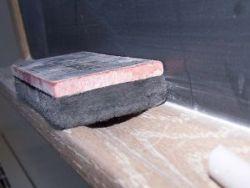Expungement of New Jersey Misdemeanors and Disorderly Person Offenses
Expungement of New Jersey Misdemeanors and Disorderly Persons Offenses

A great way for a person who made a mistake to get a fresh start is a New Jersey expungement. Attorneys from our firm help people get this fresh start by getting their disorderly persons offenses or misdemeanors expunged.
What is an Expungement?
An expungement is a court order requiring law enforcement agencies and courts to isolate and extract all records of a person’s expunged offenses. The records are sealed. The records which are expunged include warrants, commitments, arrests, fingerprints, mug shots, “rap sheets” and judicial dockets.
Prospective employers (except law enforcement agencies) cannot access these records. Only law enforcement agencies can, and then only under certain limited circumstances. Indeed, it is as if the offense never happened, and you can honestly answer on job applications that it never did. The order signed by the judge will declare that the conviction will be deemed not to have occurred.
What is the Waiting Period for an Expungement in New Jersey?
An expungement can be granted five years after the latest of the date of the conviction payment of their fines, or completion of probation or incarceration. To obtain the expungement the person seeking must not have been convicted of another crime or felony, or of another three misdemeanors or disorderly persons offenses.
How Long Does it Take to Get an Expungment in New Jersey, and What is the Procedure?
The first thing to do is gather all the information you have about your criminal history, then call to make an appointment with one of our attorneys. We will determine whether you qualify for an expungement under New Jersey law based on what you tell us. If you do, you will need to get your criminal history. We will give you the necessary information to obtain this. Once we have your official criminal history, we will prepare your petition for expungement, which you will need to sign. We will then file it with the court. The judge will set a hearing date. Normally you will not need to appear in court. The law enforcement authorities and courts involved in your charges will receive notice of your request for an expungement and will have the chance to object, although typically none do.
Depending on the county and how crowded the particular court is, expungements can take between 60 and 150 days after your request is filed with the court.
Why Get a New Jersey Expungement?
There are many good, important reasons to get an expungement. The major one is to clear your name. After an expungement you can honestly answer that you were not convicted of the offense.
Once you receive the expungement, your misdemeanor or disorderly persons offense does not need to be listed on an employment application, and will not prevent you from running from office. Most licensing boards, such as nursing, require a “clean” record. An expungement means a conviction does not need to be disclosed on school applications. It allows you to obtain a firearms permit. It removes obstacles from volunteering. Indeed, even if you are self-employed, it is important to get an expungement since a criminal conviction may prevent you from obtaining many contracts, especially but not solely with the government.
Basically, an expungement is a clean slate, and a new beginning.
When May Expunged Records be Accessed?
There are exceptions to the rule that the offense will be deemed not to have occurred. For instance, the conviction will need to be disclosed when applying for a law enforcement position or a job in the judicial branch. A person applying for a law license will need to disclose the offense. The conviction in these instances does not necessarily mean you will not get the job or license, just that it will be considered. It may be used at sentencing for new offenses. A person seeking a conditional discharge must disclose when they have had an expunged offense previously conditionally discharged. Those applying for citizenship will likely need to disclose even expunged offenses. A court may consider expunged convictions in deciding whether to grant a subsequent expungemenet.
Contact Us
If you have a misdemeanor or disorderly persons offense and would like to find out about getting it expunged, contact our attorneys. Call (973) 890-0004 or e-mail us. Even though we are located in Totowa in Passaic County, our lawyers handle expungements throughout the state of New Jersey.

